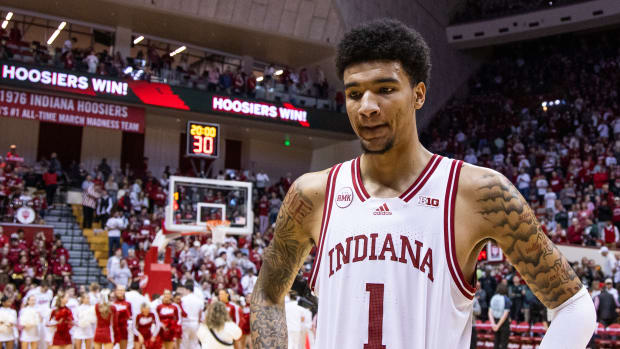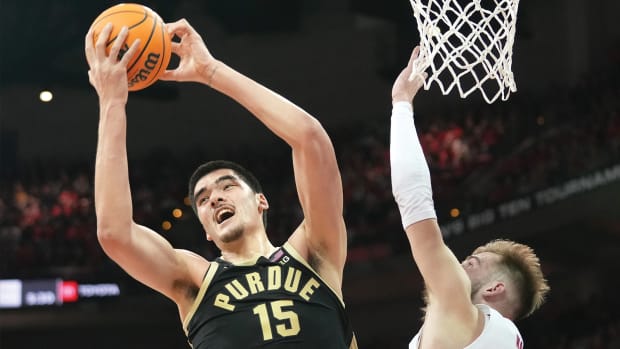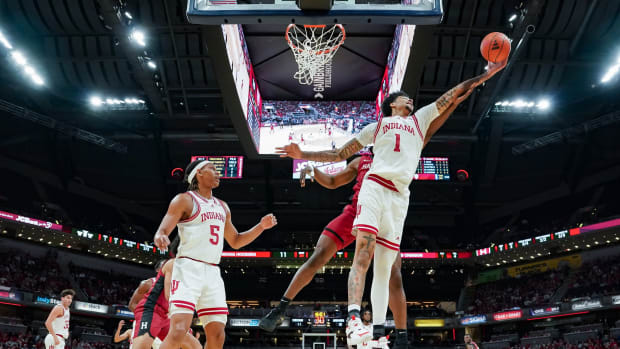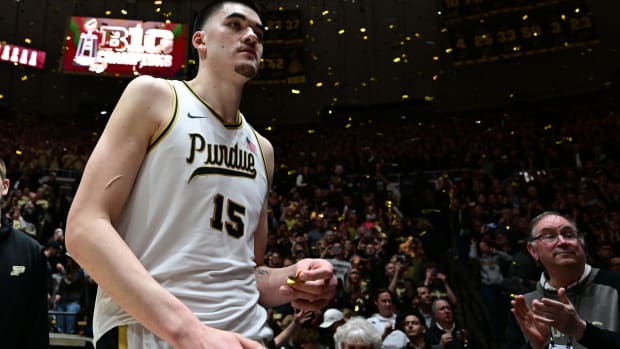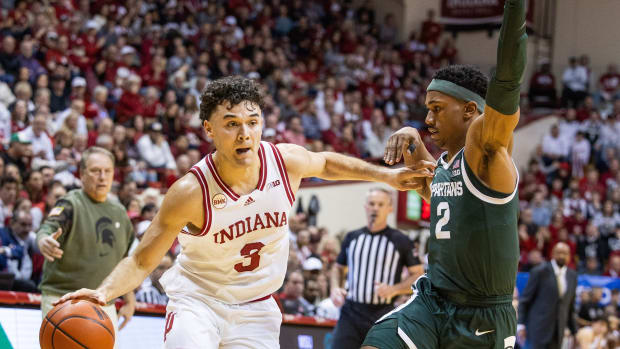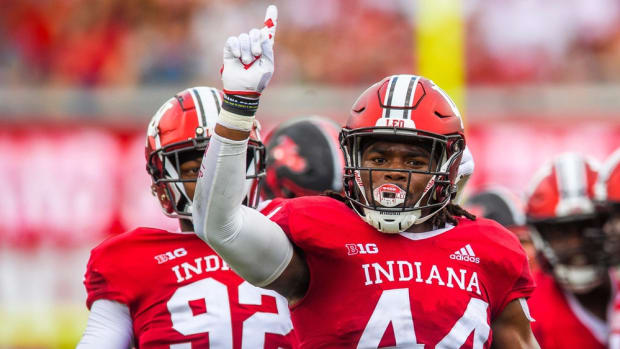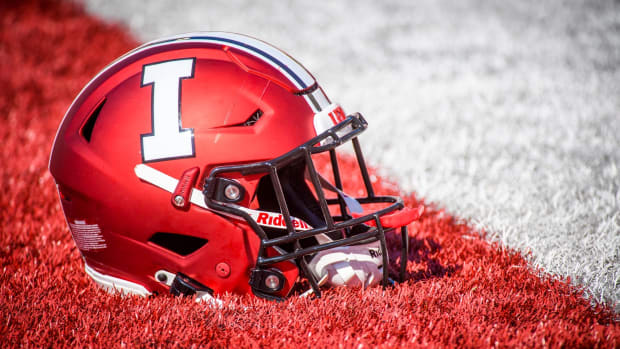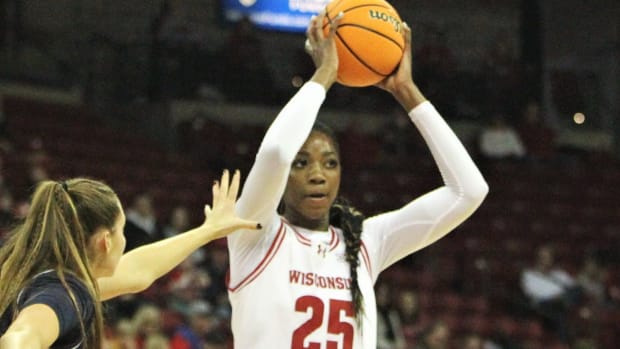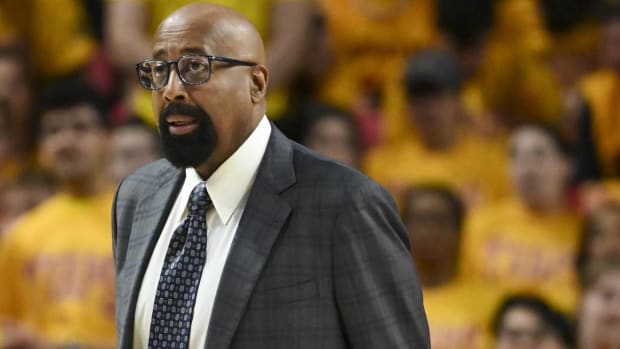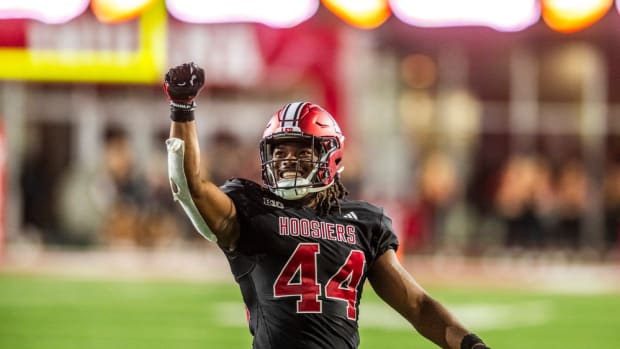Tony Dungy Offers Advice to Indiana Athletics on MLK Day
BLOOMINGTON, Ind. — Former Indianapolis Colts head coach Tony Dungy joined nearly 400 Indiana athletes and coaches on a Zoom call Monday morning to honor and spread the message of Dr. Martin Luther King Jr.
Dungy covered a lot of topics in his hour-long conversation with the Hoosiers.
Indiana athletics provided some samples of what Dungy had to say. Below is the full press release from Indiana athletics:
On a day dedicated to honoring Dr. Martin Luther King, Jr., and his leadership in the Civil Rights movement, the IU Athletics family had the opportunity to hear from an iconic Indiana sporting figure who shared thoughts on Dr. King, leadership, sports and a whole lot more.
Former Indianapolis Colts Super Bowl Championship Coach Tony Dungy spoke to nearly 400 IU student-athletes, coaches and staff members Monday in a special MLK Day event organized and hosted by the IU Athletics Anti-Hate and Anti-Racism Coalition. “Tony Dungy: A Conversation on Leadership, Courage and Embodying the Dream” was the highlight event of IU Athletics MLK Day festivities.
During his one-hour long Zoom event Monday morning, Dungy fielded a wide range of questions covering a wide array of topics, ranging from social justice to leadership to faith and its role in athletics. He also spoke about Dr. King and his vision for the country, one that he admits is as divided as it’s been in recent memory.
“I think my dream is similar to Dr. King, that we can have a country where, just like our sports world, we can go after excellence, we can pursue it, that excellence is important to us, but we can have excellence in the right way, that we can respect and love one another and work together and make the country the best it can be,” Dungy said. “That’s my dream.”
That’s an approach that Dungy has taken in becoming one of the most successful coaches in NFL history and one of the most beloved sports figures in Indiana history. A former college football standout at the University of Minnesota who spent three years in the NFL as a player, he is best known for a highly-successful 13-year head coaching career in the NFL with the Tampa Bay Buccaneers (1996-2001) and the Indianapolis Colts (2002-08). He compiled a 148-79 (.668) head coaching record, led the Colts to the 2006 Super Bowl championship, and guided his teams to the playoffs in 11 of his 13 seasons. Since retiring from coaching in 2008, he has worked with NBC as a member of their NFL coverage team.
“It was a tremendous honor to welcome Coach Dungy yesterday, and his talk was a special opportunity for our department on a very important day,” said IU Vice President and Director of Intercollegiate Athletics Scott Dolson. “I appreciate all of the efforts of our Anti-Hate and Anti-Racism Coalition and (Deputy Director of Athletics/Senior Woman Administrator) Mattie White for putting together such a special event for our students. I know Coach Dungy’s words have made a lasting impression on our IU Athletics family.”
Best known in the state of Indiana for his seven-run run as the highly-successful coach of the Indianapolis Colts, Dungy shared stories of his time with the Colts, as well as his first NFL head coaching job in Tampa Bay. But he also covered important societal issues and much more.
A sampling from Dungy’s conversation:
On athletes speaking out on social issues, which is sometimes criticized by the general public:
God has given athletes a platform, and a lot of times I can say something as an NFL coach or an NFL analyst now, and it might be the same thing that 20 other people are saying. But because of the platform I have, more people will listen, more people will think, ‘yeah, maybe that’s right.’ There’s nothing wrong with using it, if we do it in the right way, do it with respect, do it out of the desire to make things better. I think it’s what we are called to do.”
On the importance of the mental component of winning:
“Talent is definitely needed to be successful. But talent isn’t the number one ingredient that you need. We always said when I was coaching that talent without character will get you some wins, but talent with character will get championships. That’s what you want to build, that’s what you want to foster.”
On maintaining a proper family/work balance:
“You can’t make sports your whole life. We all have goals. If you’re a driven athlete, you are going to practice, you’re going to put in extra time. That’s a given because you know that’s needed to excel. But if you make sports your whole life, when it comes time to get away from that, you’re going to be disappointed because you don’t have anything else to look at. So I always preached balance to my coaches, to my players. We’re going to work hard, but work just as hard at other areas. Work just as hard at being a family member, being a husband, a part of that family, a wife.”
On the importance of his faith and the role it’s played for him on a daily basis:
“I think everything Dr. King did, he was involved in Civil Rights, he was involved in rights for the poor…he had things that he was concerned about, but it all came back to his faith, and believing this was what Christ would want us to do, to help the least of these in our communities, to be servants, to be good husbands, family men, fathers. That faith was essential to him, and it is essential to me, too.”
On the Power of Education:
“Both of my parents were athletes, but they always taught us that athletics is temporary, it’s something you have fun with. Education is what is going to take you where you want to go. You have to put as much effort and energy into your education as you do your sport. They preached that to us, and wouldn’t let us deviate from that. I didn’t always appreciate that growing up, but I do now.”
His advice to someone who wants to become a coach:
“Learn as much as you can. One of the best pieces of advice I got was my first year coaching for (Pittsburgh Steeler Hall of Fame) Coach (Chuck) Knoll, and he told me that you’re going to have a lot of opportunities in this business, don’t make decisions based on job titles or how much money you’re going to get paid. Make career decisions based on who you’re going to work for, who you’re going to work with, and what you’re going to learn…be ready to soak in everything, and try to get around good people.”
On Leadership:
“The leader sets the tone. The leader sets the direction they ship is going to go. The leader basically says how are we going to do it. Leadership is helping everyone be the best they can be. I always felt if I could do that, we’d be successful. If we picked good people, and I helped everyone be the best they can be, there was no other outcome than to be a good team.
“The leader is not the person who is in charge, not the person who has to prove they are the smartest, not the person who has to set all the rules and all the guidelines, the leader is the man or woman who sets the tone for everyone to follow.”
How to you lead a group of people with different viewpoints:
“When you get in a group, you’re going to have different viewpoints. You need to get the point across that we are going to respect everybody’s viewpoint, we’re going to honor it, we’re going to discuss it, we’re going to have open dialogue. And at the end of the day, we’re going to have some things that we don’t agree about. And that’s okay. If our ultimate group is to function as a group, we’ll get beyond that. We won’t say that because Jim believes this, and I believe that, we can’t work together. No. I can accept what Jim believes, he can accept what I believe, and we can set that aside to work toward a common goal.”
On what it felt like to be first Black coach to win the Super Bowl:
“It was an amazing feeling. When I came into the NFL, there were no Black head coaches, and there were only 10 African-American assistant coaches in the NFL out of 28 teams. So it wasn’t like we had a lot of role models. It was a difficult time. I remember my dad telling me stories about Joe Louis and Jackie Robinson…it seemed way off in the past to me, but my dad was so proud of what they did. When it came to 2006 and the Colts went to the Super Bowl, and people were saying I could be the first African-American to win as a head coach, that it would be like Jackie Robinson, and I was like, no, that’s not like Jackie Robinson. But I saw as a stepped away from it what people meant and how important it was to other people.”
